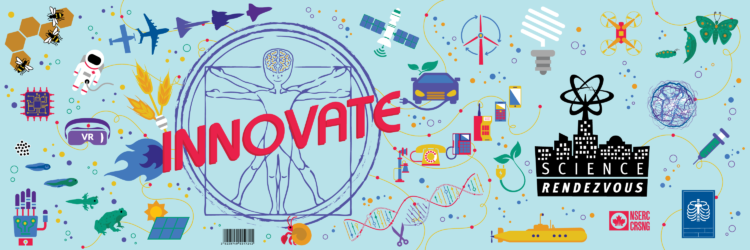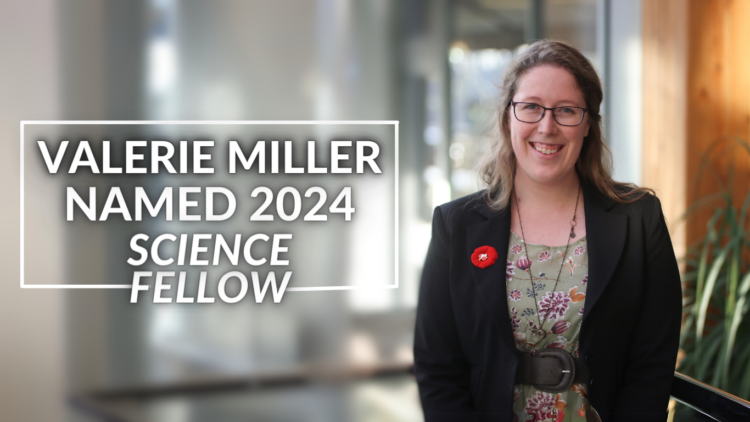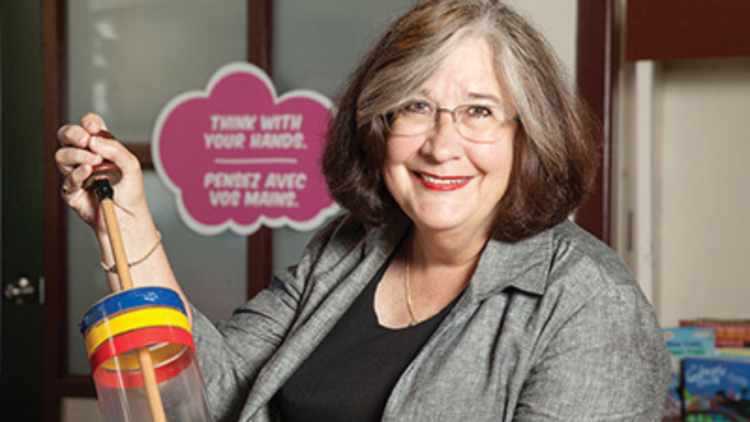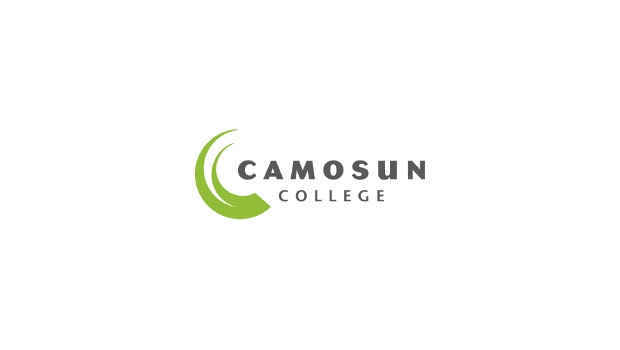It’s One Health Awareness Month so Science Rendezvous is partnering with One Health Lessons to talk about how people, other animals and the environment are all interconnected. We impact each other perhaps more than we realize.
Science Rendezvous conversed with Dr. Deborah Thomson, Founder and President of One Health Lessons, and Vanessa Nichols, a One Health intern based at Western University about their passion for One Health.
What is One Health and why is it important to you?
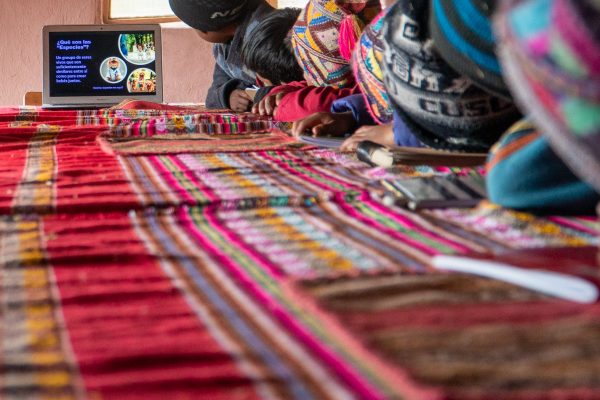
One Health Lessons class in Peru
Vanessa: The US CDC’s definition of One Health is “the collaborative efforts of multiple disciplines working locally, nationally, and globally, to attain optimal health for people, animals and our environment.” But to put it simply, One Health is teamwork between people who care about human health, animal health and environmental health. Ultimately, this teamwork can solve complicated health problems, that individuals alone cannot solve, such as the pandemic.
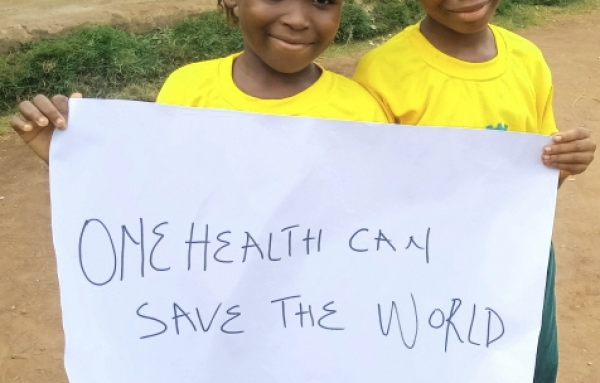
One Health Lessons class in Nigeria
To me, One Health is the solution. Silo mentalities have dominated corporate culture for so long–hindering workflow, dragging out project timelines and creating needless competition. One Health is the “bridge” needed to overcome gaps between agencies like municipal, provincial and federal governments, Agriculture and Agri-Food Canada, Public Health Agency of Canada (PHAC), Canadian Veterinary Medical Association (CVMA), Environment Canada etc. These parties all have the same goal in mind (optimal health outcomes) and overlapping interests and therefore, there needs to be open communication, collaboration, data unification and information sharing across them.
By having knowledge about the connections in our natural world, and the circular impact of our actions, we can work towards a better world and better health for all. Humans tend to be inherently selfish by nature, putting our own needs above everything else. Understanding and realizing that neglecting environmental and animal health is detrimental to our own health – we can unite to fix these wrongdoings.
Deborah: Yes! Agreed!
How did you become involved with One Health?
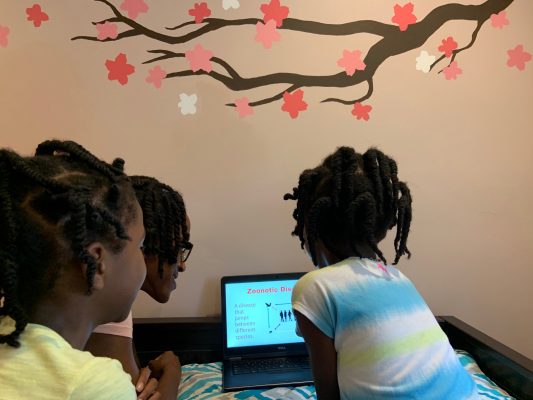
Homeschooling with One Health Lessons
Vanessa: I was first introduced to One Health while in my second year of University. In my program, we don’t specialize until this point and I was trying to figure out which module I wanted to pursue. I was fascinated by the intricacy of cell biology and disease pathology but was also highly driven by macro-level issues like environmental justice, sustainability and climate action.
I went to see my academic advisor and she told me that Western just launched a new Medical Science module called One Health. She thought that it might be of interest to me and was gaining a lot of traction in many post-secondary educations across the globe. I immediately felt a strong desire to learn more, which is how I ended up in the Honours Specialization Module in One Health, as well as being a One Health advocate outside of school.
Deborah: I first learned about One Health while at veterinary school (as part of the International Veterinary Medicine Certificate program at Tufts University’s vet school). By that point, I was already in my mid-20s and thought that was way too late to learn about this important concept. That is why I started One Health Lessons.
What is One Health Lessons?
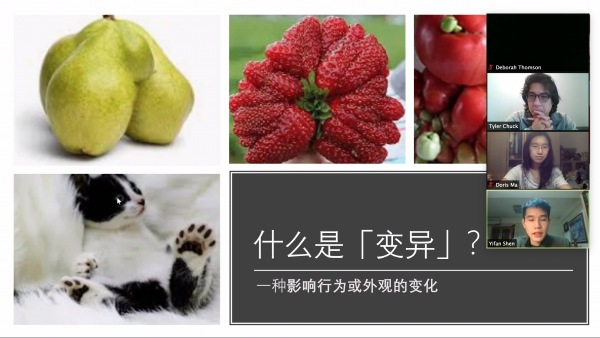
One Health Lessons interns preparing to teach the lesson in Chinese
Deborah: One Health Lessons is an organisation with a mission to inspire people around the world to value One Health. The website affiliated with the group (OneHealthLessons.com) was launched on May 1, 2020 and within 8 months, COVID-19 lessons (that are freely available on the website) have been translated into over 75 languages by over 600 volunteers. One Health Lessons has started a Global One Health Education Movement!
Vanessa: To inspire every child (and their families) to value One Health…we create high quality educational content about One Health topics such as zoonotic diseases, mutations, climate change and antimicrobial resistance. The lessons are age-specific, designed for both in-person or virtual learning and are being translated into over dozens of languages. Accessibility and flexibility of the lessons is our priority and we want everyone–no matter their age, ability and/or location–to be able to learn about and value One Health.
How is accessibility and flexibility integrated into One Health Lessons?
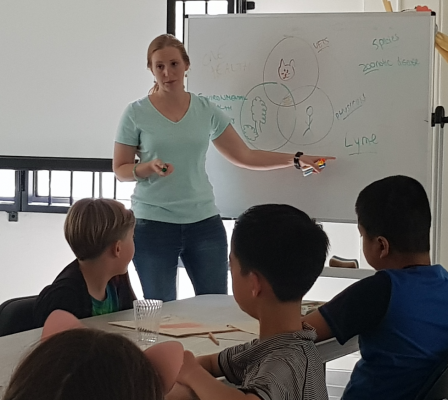
One Health Lessons class in North America
Vanessa: The lessons can be printed out for in-person teaching in areas without a stable internet connection or home-schooled households. The lessons have a flexible length from 30 minutes to 1 hour depending on the classroom’s preferences and needs. Our translating team is composed of native speakers of the language, which is important to ensure the quality and integrity of the content is conserved, rather than using a web-based translation software. The languages that we offer the lessons in is constantly expanding, and we recently have added American Sign Language and Indigenous languages like Dene and Ojibway. Finally, the COVID-19 lesson is 100% free for educators, students and parents to access.
What does public engagement with science mean to you and why is it important?
Vanessa: Public engagement with science involves speaking WITH the public rather than talking TO them. This means there is two-way communication, active listening and learning from both sides and an open dialogue. This is important because it allows people to understand the relevance of topics like climate change or antimicrobial resistance (AMR) and how it is relevant to them in their everyday lives. Moving forward, there is a lot more weight in the words of scientists and academia when the public is supportive and backing them.
Thank you so much to Deborah and Vanessa for advocating for One Health and partnering with Science Rendezvous for One Health Awareness Month! You can learn more about One Health Lessons on their website and social media (Facebook, Instagram, Twitter, LinkedIn, YouTube, TikTok).


